Knee replacement surgery, or total knee arthroplasty, can change lives for those with chronic knee pain and limited mobility. Surgery improves life, but recovery can be tough. Avoid common mistakes after a knee replacement.
Let’s explore the Top 5 Mistakes after Knee Replacement, discuss the worst day after surgery, talk about what not to do during your recovery, address post-surgery clothing, discuss knee replacement scars, and provide guidance on post-surgery diet. We’ll add a FAQ section and end with a summary of key takeaways for a smooth recovery.
Visit The best Remedies for a better lifestyle.
Top 5 Mistakes after Knee Replacement
1. Neglecting Physical Therapy
Don’t neglect your physical therapy after knee replacement surgery – it’s one of the biggest mistakes you can make! Physical therapy is crucial for your recovery. It helps you regain strength, mobility, and flexibility in your knee. Not following the therapist’s instructions or skipping sessions can slow down recovery and lead to less favorable outcomes.
Key takeaway: prioritize and stick to your rehab exercises as advised by your therapist or surgeon.
2. Overexerting Yourself Too Soon
Be proactive in your recovery, but don’t overexert yourself too soon. Avoid pushing your knee too hard or doing strenuous activities too soon. This can cause more pain, swelling, and potential damage to the surgical site. Follow your surgeon’s guidelines and gradually increase your activity level.
Key takeaway: Listen to your body and don’t overexert yourself to avoid setbacks in your recovery.
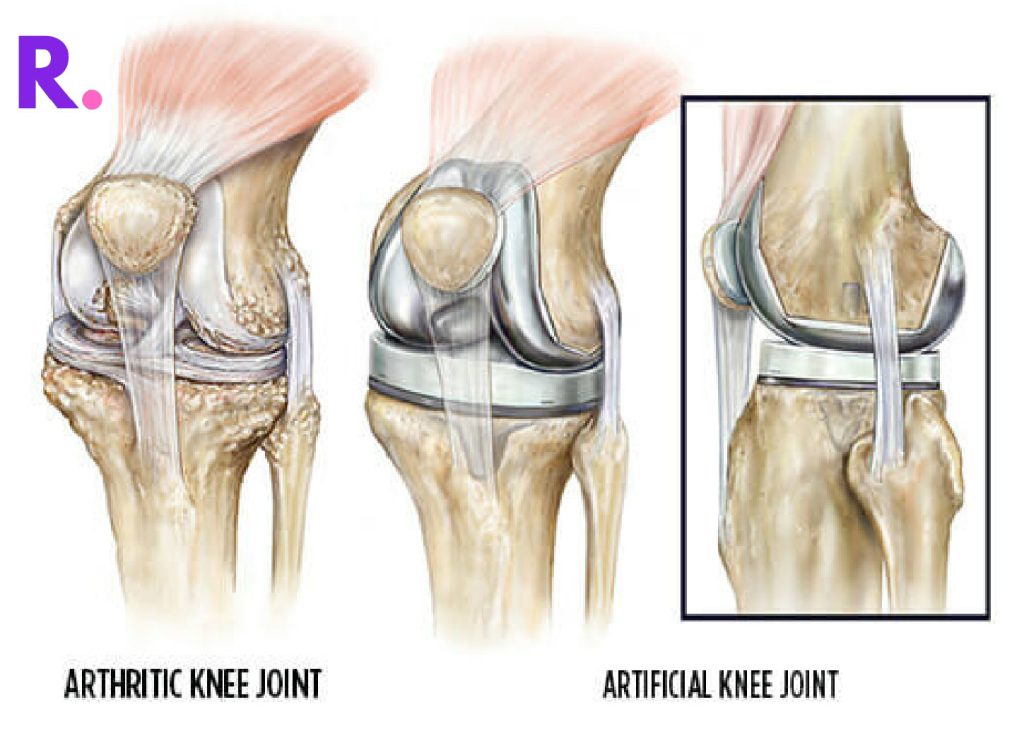
3. Ignoring Pain and Swelling
Avoid ignoring the pain and swelling in your knee after surgery. Excessive pain or swelling? Not good. Communicate unusual symptoms promptly with your healthcare team. Ignoring warning signs can cause complications or delay recovery.
Key takeaway: work closely with your healthcare provider to manage post-operative pain effectively.
4. Neglecting Medication and Pain Management
Proper pain management is vital during the initial stages of recovery. Some patients make the mistake of neglecting their prescribed medications, thinking they can tough it out. However, pain control is essential to facilitate your mobility and overall well-being during recovery.
Key takeaway: take your medications as prescribed and communicate any concerns with your healthcare provider.
5. Neglecting Your Diet
Proper nutrition plays a vital role in the healing process after knee replacement surgery. A balanced diet rich in nutrients can promote tissue repair and help you regain strength. Neglecting your diet can slow down your recovery.
Key takeaway: focus on a nutritious diet that includes protein, vitamins, and minerals to support healing and overall health.
You can also watch: TOP FIVE MISTAKES PEOPLE MAKE AFTER TOTAL KNEE REPLACEMENT

Worst Day after Knee Replacement
The days after knee replacement surgery can be tough, with the first day being the hardest. Here are some expectations and coping tips:
Experiencing Pain and Discomfort.
The day after knee replacement surgery is usually very painful. Expect discomfort as anesthesia wears off and swelling begins. To manage this, take your prescribed pain medication as directed and follow your surgeon’s recommendations for ice and elevation.
Limited Mobility.
Moving or getting out of bed can be tough after knee replacement. Follow your physical therapist’s guidance on gentle exercises and movements to prevent joint stiffness.
Swelling and bruising
Expect swelling and bruising around the surgical site after knee replacement surgery. Symptoms peak on the first day after the procedure. To reduce swelling, keep icing your knee as instructed by your healthcare team and elevate your leg whenever you can.
Dealing with Emotions.
The worst day after a knee replacement is emotionally taxing too. Feeling a mix of emotions is normal, including anxiety and frustration. Lean on your support system: family, friends, and healthcare providers. They’ll provide encouragement and guidance.
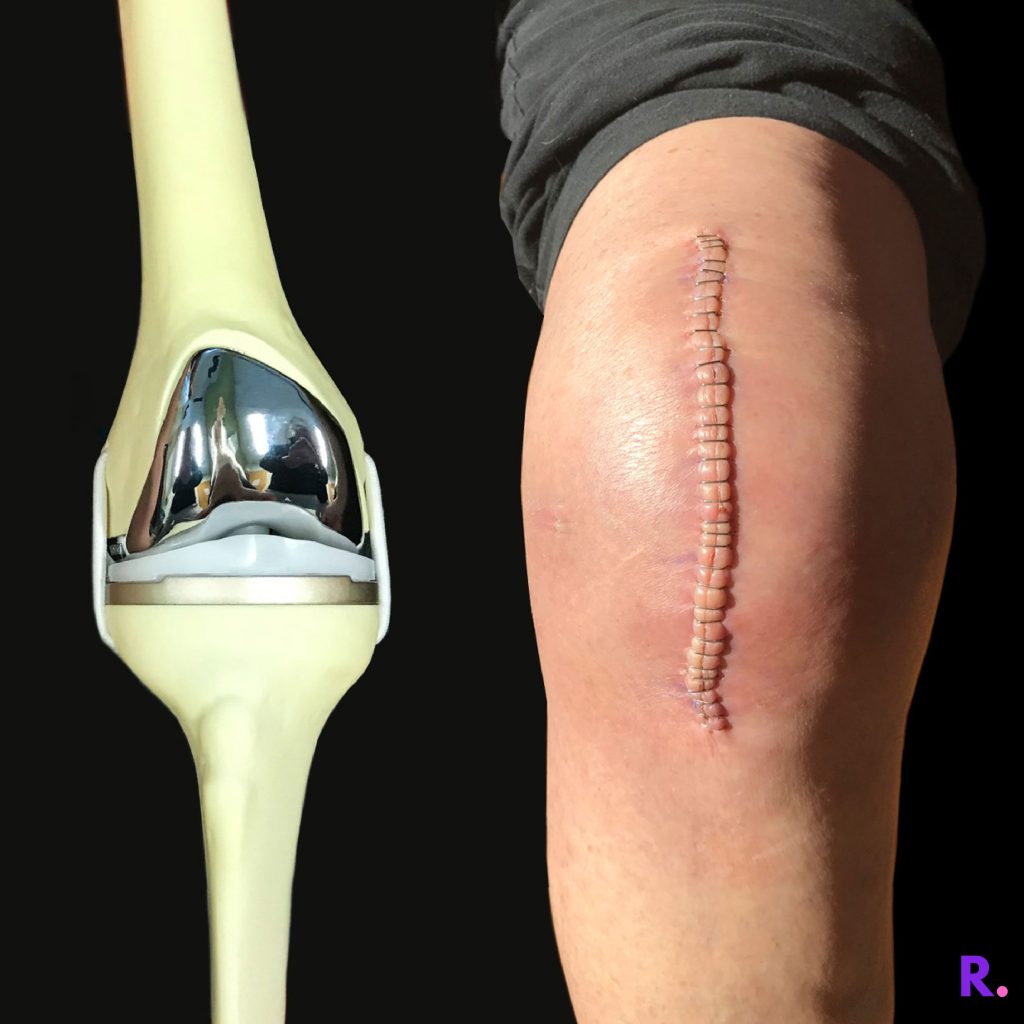
What Not to Do after Knee Replacement?
To recover successfully after knee replacement surgery, know what to avoid.
1. Stay Away from High-Impact Activities.
Avoid high-impact activities like running or jumping after knee replacement surgery. These activities stress the new joint and may cause complications. Focus on low-impact exercises recommended by your physical therapist.
2. Take All Medications as Prescribed.
Skipping prescribed medications can cause pain, blood clots, and slow healing. Follow your medication schedule as directed by your healthcare provider.
3. Steer Clear of Excessive Weight Gain.
Gaining excessive weight during the recovery period can put added stress on your new knee joint. Maintain a healthy diet and work with a dietitian if needed to ensure you’re not gaining unnecessary weight.
4. Don’t Push Through Pain.
While some discomfort is expected during recovery, pushing through severe pain is a mistake. Pain is your body’s way of signaling that something is wrong. If you experience intense pain, contact your surgeon or healthcare provider immediately.
5. Avoid Neglecting Follow-Up Appointments.
Follow-up appointments with your surgeon are crucial for monitoring your progress and addressing any concerns. Skipping these appointments can lead to undetected issues and hinder your recovery.
What to Wear After Knee Surgery?
Choosing the right clothing to wear after knee replacement surgery can make a significant difference in your comfort and mobility. Here are some clothing considerations:
1. Loose-Fitting Clothing
Opt for loose-fitting pants or shorts that can be easily pulled on and off without the need to bend your knee excessively. Elastic waistbands can be particularly comfortable.
2. Slip-On Shoes
Invest in slip-on shoes or sandals with Velcro straps. These are much easier to put on than shoes with laces, which can be challenging to tie while recovering from knee surgery.
3. Compression Stockings
Your healthcare provider may recommend wearing compression stockings to help reduce the risk of blood clots. Follow their guidance on the type and fit of compression stockings to wear.
4. Knee Brace or Support
Depending on your surgeon’s recommendations, you may need to wear a knee brace or support garment. Make sure to use it as directed for added stability and protection.
Knee Replacement Scars
Knee replacement surgery results in a scar, and proper scar care is essential for minimizing its visibility and promoting healing. Here’s how to manage knee replacement scars:
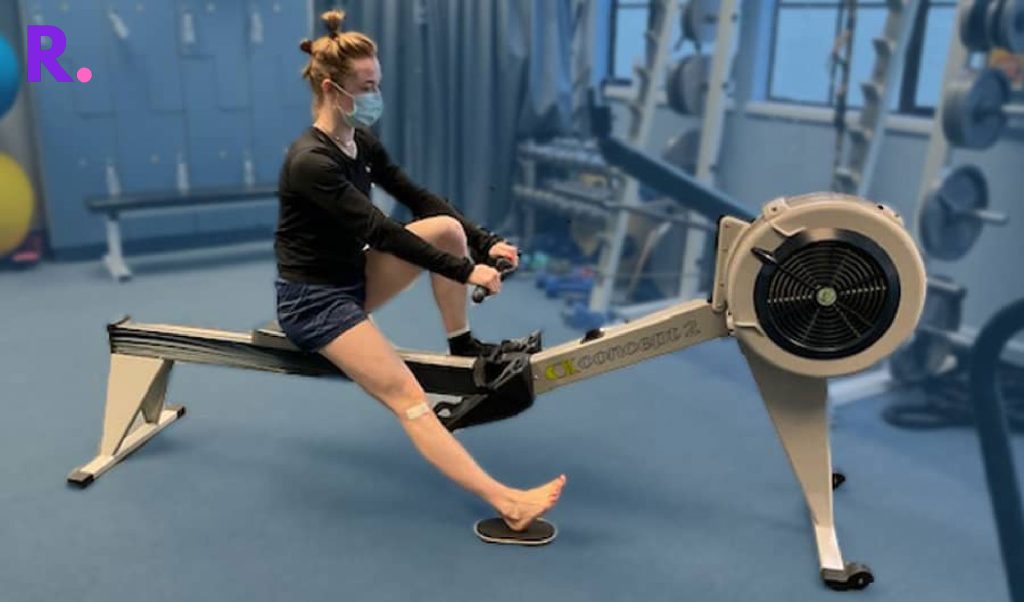
Keep the Incision Clean
Follow your surgeon’s instructions for cleaning and caring for the incision site. Keeping the area clean and free from infection is crucial for proper healing.
Use Scar Cream or Ointment
Your healthcare provider may recommend using a scar cream or ointment to promote scar healing and reduce visibility. Follow their guidance on application, frequency and technique.
Protect The Scar from Sun Exposure
Exposing the scar to direct sunlight can cause it to darken and become more noticeable. Use sunscreen or cover the scar when you’re outdoors, especially during the initial healing stages.
Massage the Scar
Gentle scar massage can help break down scar tissue and improve the scar’s appearance. Consult your surgeon or physical therapist for specific massage techniques and timing.
Give it Time
Remember that scars take time to mature and fade. Be patient and consistent in your scar care routine, and over time, the scar will become less noticeable.
You can also read: SCAR TREATMENTS: TYPES OF SCARS AND THEIR TREATMENTS.
What to Eat After Knee Surgery?
Good nutrition is important for healing after knee replacement surgery. Follow these dietary guidelines:
Protein is Important.
Protein is important for fixing and healing tissues. Eat chicken, fish, lean beef, and legumes for protein.
Use Anti-Inflammatory Foods.
Certain foods can reduce inflammation and pain after surgery. Eat fruits, vegetables, whole grains, salmon, and walnuts.
Stay Hydrated by Drinking Water.
Staying hydrated is important. It helps prevent complications like blood clots. Stay hydrated by drinking plenty of water throughout the day.
Avoid Excessive Sugar and Processed Foods.
Sugar and processed foods cause inflammation and weight gain. Consume fewer sugary snacks and processed meals.
You can also read: WHAT FOOD TO EAT AFTER KNEE REPLACEMENT SURGERY?
Consult a Dietitian.
See a dietitianfor a custom meal plan. They can assist with your recovery and diet.
Recovering from knee replacement surgery requires attention. Be careful while healing. To recover well after knee replacement, remember these steps: avoid the Top 5 Mistakes after Knee Replacement, know the challenges of the worst day after surgery, follow guidelines on what not to do, and make good choices for clothing, scar care, and nutrition.
Each person’s journey is unique. Work closely with your healthcare team to customize your recovery plan. Follow these guidelines and seek professional advice when needed. This will increase your chances of a smoother and more successful recovery after knee replacement surgery.
Can you ice too much after knee replacement?
It is possible to ice too much after knee replacement surgery. While ice is beneficial for reducing swelling and pain, excessive icing can lead to frostbite or skin damage. Follow your surgeon’s recommendations on ice application, typically 20 minutes at a time with breaks in between.
You can also watch: ICE THERAPY AFTER TOTAL KNEE REPLACEMENT. ICE VS REUSABLE PACKS VS ICE MACHINES.
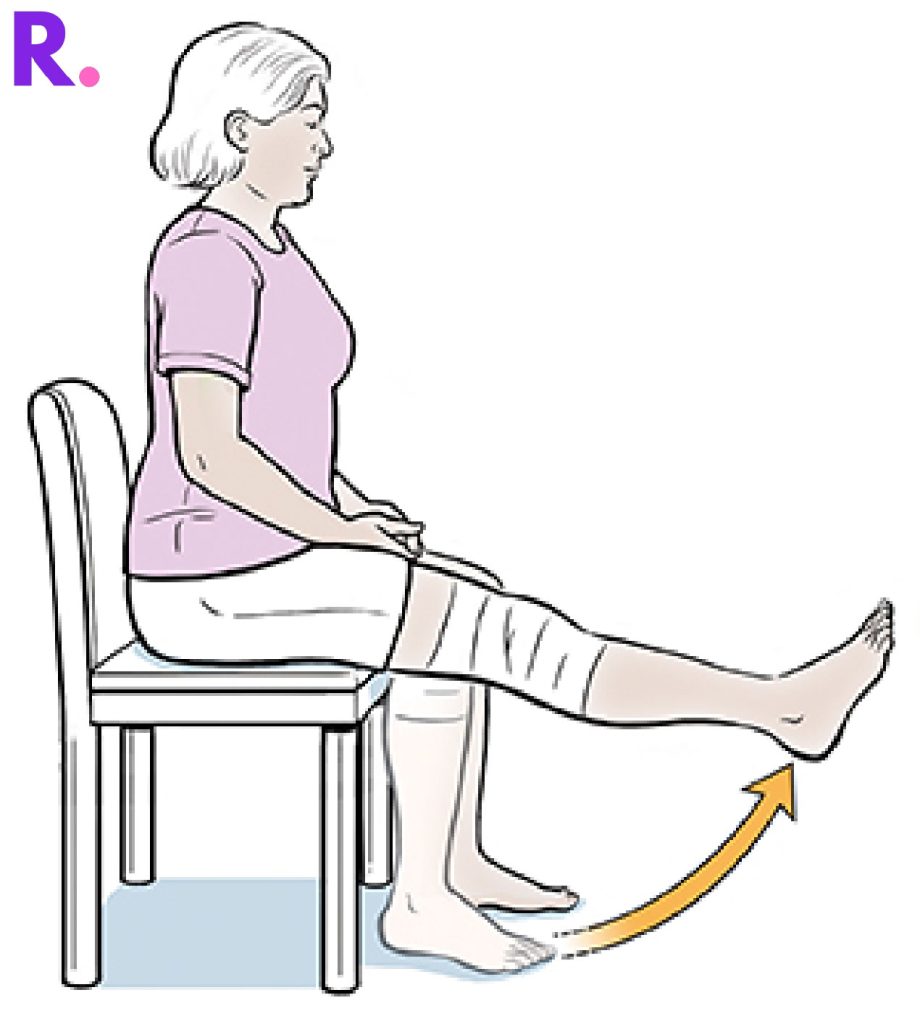
When can I resume driving after knee replacement?
The timing for resuming driving after knee replacement surgery varies from person to person. Generally, you can consider driving when you have good control over your knee, are no longer taking narcotic pain medications, and can comfortably perform emergency braking. Consult with your surgeon for specific guidance.
How long does it take for knee replacement scars to heal?
Knee replacement scars typically take several months to a year to fully heal. However, they may continue to fade and become less noticeable over time. Proper scar care, such as massage and sunscreen use, can help improve the appearance of the scar.
How do I prevent knee buckling after total knee replacement?
To prevent knee buckling, do physical therapy and follow your surgeon’s advice for weight-bearing activities.
Which foods should I avoid after knee surgery?
Avoid sugary snacks, processed foods, and too much red meat after knee surgery to prevent inflammation. Eat a balanced diet with lean proteins, fruits, vegetables, whole grains, and healthy fats to help you recover.
When can I go back to normal activities after knee replacement?
The time it takes to get back to normal activities is different for each person. It also depends on the activities you want to start again. Most people can start driving again within a few weeks to a couple of months after surgery. Strenuous activities may take several months. Follow your surgeon and physical therapist’s guidance for when it’s safe to resume activities.
How long will my knee replacement scar take to fade?
Knee replacement scars typically go through a gradual fading process. While it can vary from person to person, scars generally start to look better after a few months and continue to improve over the course of a year or more. Proper scar care, including massage and sun protection, can help expedite the fading process.
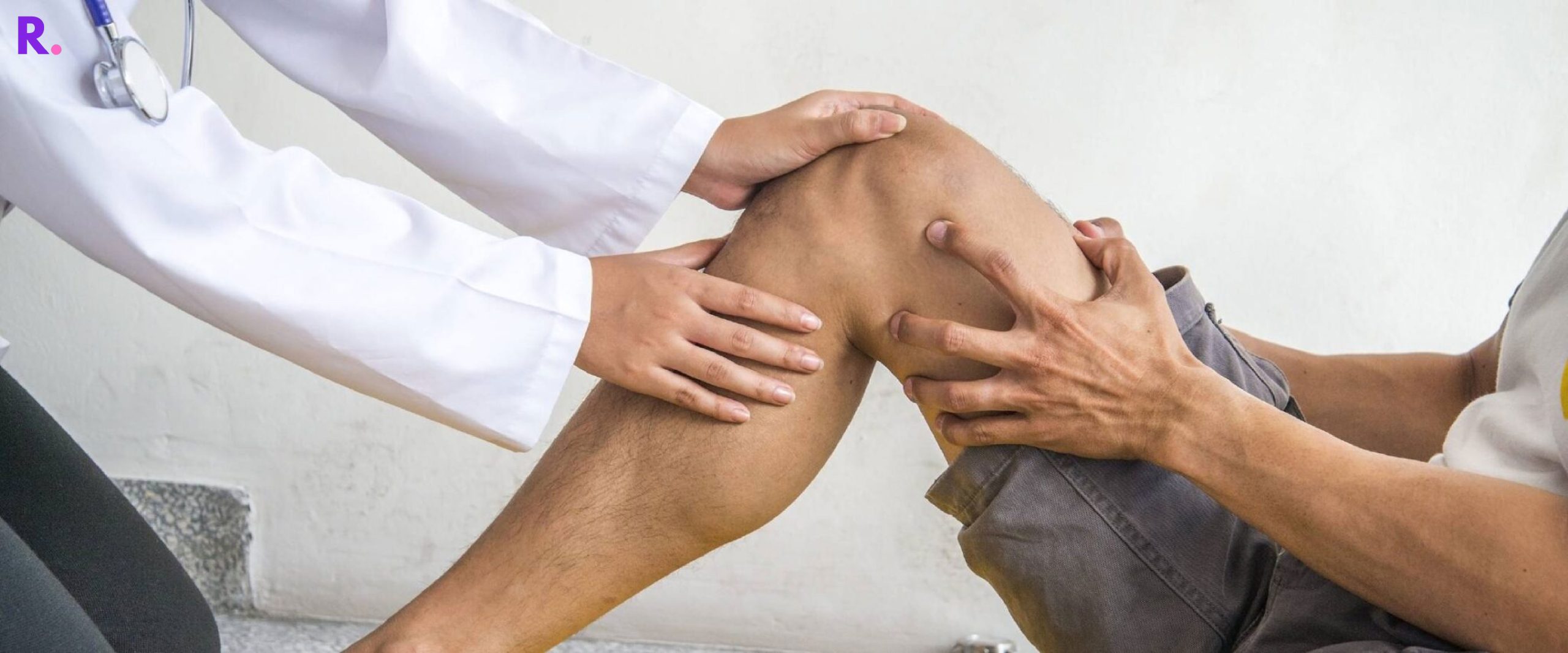











Hello there, just became alert to your blog through Google,
and found that it is truly informative. I am going to
watch out for brussels. I’ll appreciate if you
continue this in future. Many people will be benefited from your
writing. Cheers!
Thankyou for your appreciation! Appreciate your feedback on my blog. I’ll try my best to continue writing on these topics in future.:))